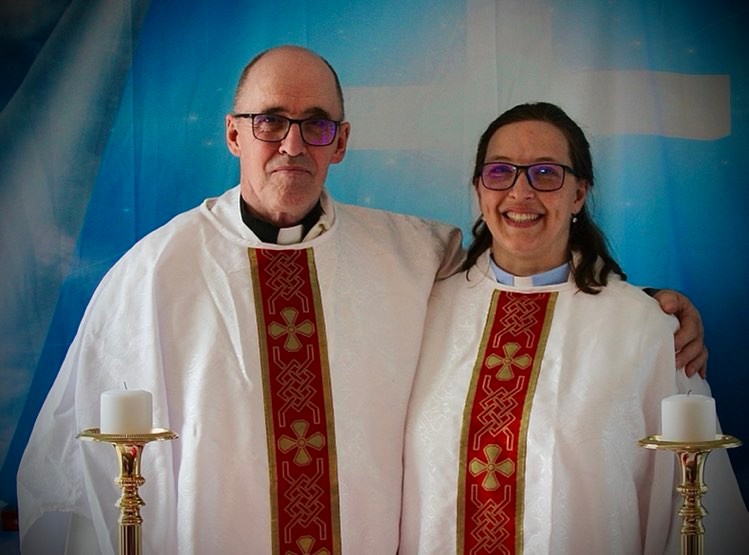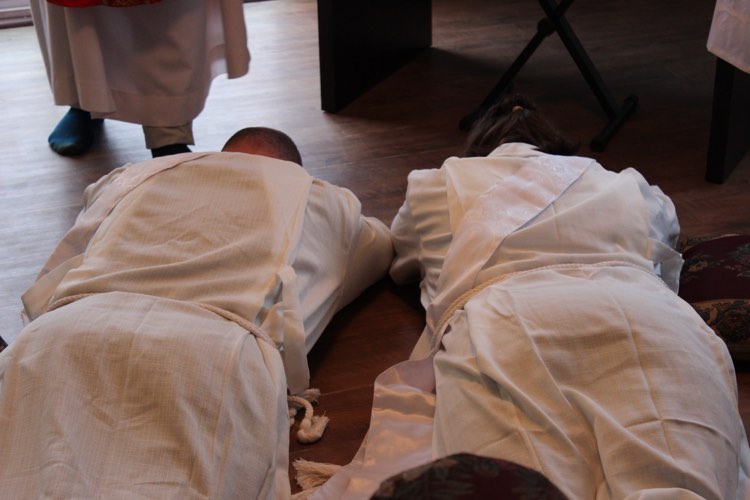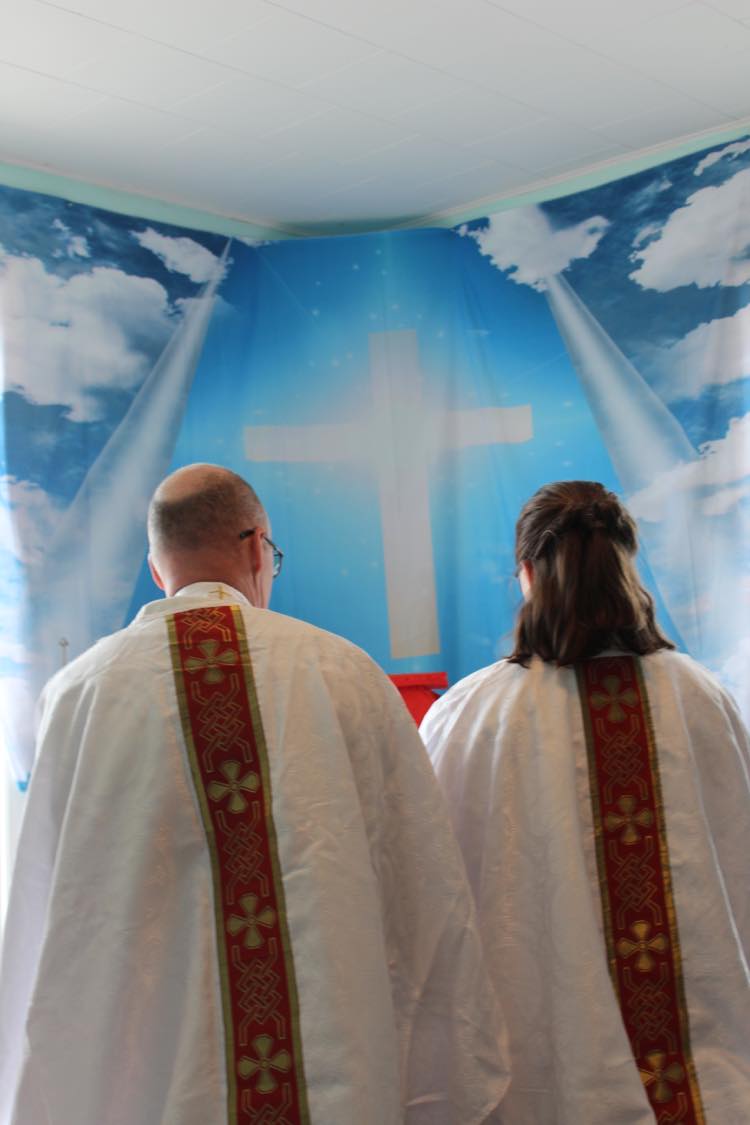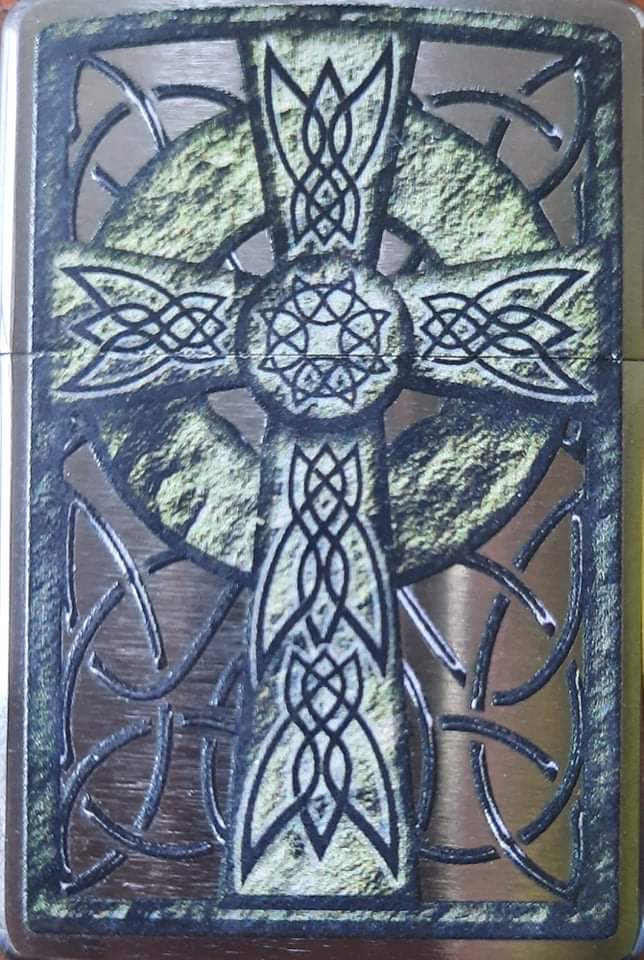- Home
- Seminary Studies
- Catholic Sacramental Theology
Simply Catholic and Welcoming You
Catholic Sacramental Theology

Fr. Philip and Amma Charlene Bradley
Both Ordained Priests in Full Apostolic Succession
Catholic sacramental theology is a branch of Christian theology that explores the nature, significance, and role of sacraments within the Christian faith. It examines how God uses visible, tangible elements (like water in baptism or bread and wine in the Eucharist) to convey invisible grace and spiritual realities to believers.
Sacraments as Visible Signs of Invisible Grace
Sacraments are seen as outward signs of God's inward grace, instituted by Christ, through which God's life and grace are transmitted to believers.
God's Use of Creation
Catholic sacramental theology emphasizes that God uses his creation (water, bread, wine, etc.) to convey grace.
Theological Understanding of Sacramental Rites
A theological understanding of sacramental rites provides a theological framework for understanding the significance and meaning of Christian rites, particularly those recognized as sacraments. Sacramental theology recognizes that God initiates the grace through the sacraments, and human beings respond through faith and participation.
While the core understanding of sacraments as signs and channels of grace is shared, different Christian denominations may have varying numbers and interpretations of particular sacramental rites.
Impact on Salvation
Sacramental theology explores how sacraments contribute to the process of salvation, and how they relate to the study of salvation. Catholic sacramental theology emphasizes that God's grace, which is essential for salvation, is dispensed through specific ritual acts, or sacraments, rather than solely through faith or good works. This means that sacraments like baptism, confirmation, and the Eucharist are seen as tangible ways for believers to encounter God's saving power and participate in the mysteries of salvation.
Connection to Ecclesiology
Catholic sacramental theology examines the relationship between sacraments and the Church, including the role of ecclesiastical authority in administering and understanding sacraments.
Sacramental theology and ecclesiology are closely intertwined in Christian thought, exploring the nature of the Church and how it manifests Christ's presence and grace through visible signs. Ecclesiology, the study of the Church, often incorporates sacramental theology to understand the Church as a sacrament, a visible sign and instrument of God's grace and salvation.
Different Christian traditions have varying views on the number and nature of sacraments. In all Catholic Churches there are seven recognized and accepted sacraments.
Historical Development
The early Church fathers laid the foundations for sacramental theology, emphasizing the connection between the visible and invisible realms.
Then, in the medieval period, scholastic theologians, like Thomas Aquinas, developed systematic frameworks for understanding sacraments, including their efficacy and relationship to faith.
The Reformation led to different understandings of sacraments, with some denominations emphasizing fewer sacraments than others.
Catholic Sacramental Theology Today

Two Deacons During Their Priesthood Ordinations
Catholic sacramental theology continues to be a topic of discussion and debate in ecumenical circles, as different denominations grapple with the meaning and practice of sacraments.
Sacramental theology helps Christians understand the rich history and traditions of their faith, particularly the role of ritual and symbol in worship.
Sacramental theology can deepen one's understanding and appreciation for the sacraments as channels of grace and encounters with God.
The sacraments are classified as Christian Initiation (Baptism, Confirmation and the Eucharist), Sacraments of Healing (Reconciliation and Anointing of the Sick), and Sacraments of Commitment (Matrimony and Holy Orders). The Eucharist occupies a unique place as the Sacrament of Sacraments and all the other Sacraments are tied to it so as to bring us each to worthily receiving the Eucharist.
Baptism
A symbolic washing that signifies cleansing and new life in Christ. Baptism can be done by either immersion or pouring. In Catholic traditions baptism must follow the triune formula to be considered valid. Meaning that the person must be baptised in the Name of the Father and of the Son and of the Holy Spirit/Ghost.
At Baptism, we hear of the role of the Holy Spirit in the prayer over the baptismal water.
Confirmation
At Confirmation, we learn the implications of this new life in the Holy Spirit.
Perhaps the best explanation of Catholic Confirmation starts with the Bishop’s ‘Charge’.
The Charge
Addressing the congregation the Bishop says;
"For the good of His Kingdom, God requires all to be baptised of their own volition. Those who have been Christened or Baptised when young are called to re-affirm the decision made on their behalf in earlier years. As these persons, having learned what their Godfathers and Godmothers promised for them in Christening or baptism, they may themselves, with their own word and consent, openly before God, ratify and confirm the same."
Concise and clear!
The Holy Eucharist (Lord's Supper/Catholic Mass) A ritual that commemorates the Last Supper, often seen as a means of receiving the body and blood of Christ. Eucharistic celebrations are common across Christianity yet vary in manner and understanding.
For Catholics the Holy Eucharist refers to Holy Communion or the Body and Blood of Christ, which is consumed during the Catholic Mass or Eucharistic Celebration. The Eucharist is upheld as the Sacrament of Sacraments and all the other Sacraments lead to it as it was this sacrifice that made salvation possible for us all.
The transformed bread and wine are truly the Body and Blood of Christ and are not merely symbols. When Christ said “This is my body” and “This is my blood” the bread and wine are transubstantiated. Though the bread and wine appear the same to our human faculties, they are actually the real body and blood of Jesus.
Reconciliation
The Sacrament of Reconciliation, which Catholics more commonly call Catholic Confession, is a place of victory over sin, a return to Jesus and to Grace or personal holiness. This is an opportunity for the penitent to confess their serious sins and be granted forgiveness of them.
The Anointing of the Sick
The Anointing of the Sick is a sacramental Blessing that can be administered to anyone who is facing any kind of health challenge. They do NOT need to be at risk of death to receive this Blessing.
The Sacrament of Catholic Holy Matrimony
The Sacrament of Catholic Holy Matrimony is understood by St. Brigit's Community Catholic Church to be a religious ceremony solely. While the registration of civil marriage or civil partnership may be necessary to give legal standing to the union of 2 persons, such a ceremony cannot by it’s nature constitute marriage as that sacrament is understood by the church in religious terms.
Holy Orders
Different Christian churches have different ways of appointing their clergy. For Catholics this can only be valid when a bishop, who themselves was properly ordained and consecrated first as a priest and then as a bishop, lays their hands on the head of the priesthood candidate and properly ordains them in Apostolic succession to their priesthood office and ministry.
Catholic sacramental theology distinguishes itself from other Christian churches primarily through its emphasis on the seven sacraments as instituted by Christ, the belief in transubstantiation in the Eucharist, (and for Roman Catholics, the importance of the Pope as the visible head of the Church).
While some Protestants also recognize baptism and the Eucharist, they typically view these as symbolic acts of remembrance, not as channels of grace through which God's grace is directly imparted.
Furthermore, Catholic sacramental theology emphasizes the role of ordained clergy in administering sacraments, while many Protestant traditions allow for lay leadership in some or all sacraments.
Recent Articles
-
Catholic-Confession
Apr 19, 25 08:53 PM
Full breakdown of the Catholic Confession Sacrament of Reconciliation -
Ordination, incardination and dismissal of clergy
Mar 03, 25 06:47 PM
Overview of Ordination to Holy Orders, incardination and dismissal of clergy -
Catholic Last Rites
Mar 03, 25 06:41 PM
An explanation of the Catholic Last Rites and Anointing of the Sick

